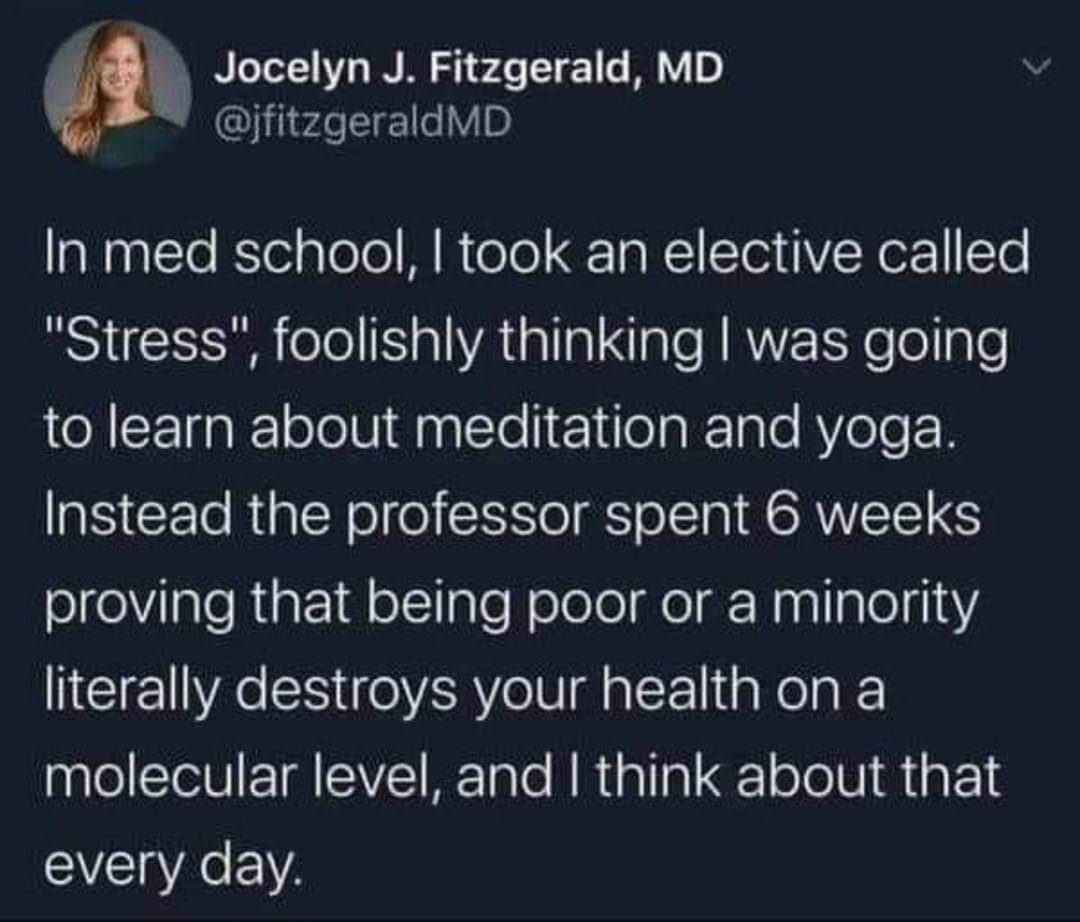this post was submitted on 28 Oct 2024
1378 points (98.1% liked)
Science Memes
11205 readers
3464 users here now
Welcome to c/science_memes @ Mander.xyz!
A place for majestic STEMLORD peacocking, as well as memes about the realities of working in a lab.

Rules
- Don't throw mud. Behave like an intellectual and remember the human.
- Keep it rooted (on topic).
- No spam.
- Infographics welcome, get schooled.
This is a science community. We use the Dawkins definition of meme.
Research Committee
Other Mander Communities
Science and Research
Biology and Life Sciences
- !abiogenesis@mander.xyz
- !animal-behavior@mander.xyz
- !anthropology@mander.xyz
- !arachnology@mander.xyz
- !balconygardening@slrpnk.net
- !biodiversity@mander.xyz
- !biology@mander.xyz
- !biophysics@mander.xyz
- !botany@mander.xyz
- !ecology@mander.xyz
- !entomology@mander.xyz
- !fermentation@mander.xyz
- !herpetology@mander.xyz
- !houseplants@mander.xyz
- !medicine@mander.xyz
- !microscopy@mander.xyz
- !mycology@mander.xyz
- !nudibranchs@mander.xyz
- !nutrition@mander.xyz
- !palaeoecology@mander.xyz
- !palaeontology@mander.xyz
- !photosynthesis@mander.xyz
- !plantid@mander.xyz
- !plants@mander.xyz
- !reptiles and amphibians@mander.xyz
Physical Sciences
- !astronomy@mander.xyz
- !chemistry@mander.xyz
- !earthscience@mander.xyz
- !geography@mander.xyz
- !geospatial@mander.xyz
- !nuclear@mander.xyz
- !physics@mander.xyz
- !quantum-computing@mander.xyz
- !spectroscopy@mander.xyz
Humanities and Social Sciences
Practical and Applied Sciences
- !exercise-and sports-science@mander.xyz
- !gardening@mander.xyz
- !self sufficiency@mander.xyz
- !soilscience@slrpnk.net
- !terrariums@mander.xyz
- !timelapse@mander.xyz
Memes
Miscellaneous
founded 2 years ago
MODERATORS
you are viewing a single comment's thread
view the rest of the comments
view the rest of the comments

There are medical researchers that have MD's, but they are not practicing physicians (usually). There are MD/PhD programs that are aimed toward medical research fields (usually with the PhD being in biology or chemistry as you mentioned), and lots of biological and biomedical engineers working on certain medical fields as well (especially using stem cells and other chemical cues to regrow tissues). So yeah, biology- and physiology-adjacent sciences are where most of the actual advances are happening.
Actually practicing medicine is basically like being a mechanic that specializes in keeping one particularly poorly designed piece of equipment running.
So was a wrong, most researchers go through MD/PhD programs? Like what percent of researchers go through medical school? 50/50?
I don't know that you're wrong, because those MD/PhD programs are exceptionally demanding (but are a good way to avoid med school debt for some). It's more that even for pure MD's, research is a very, very different career path than practicing physician. I think researchers still have to go through residency, but after that they're mostly designing and arranging clinical trials, writing grants, interacting with related university departments, etc.
So, you know, research stuff rather than patient stuff.
edit: to address your actual question, I have no idea what the numbers for each path look like. A lot of those fields get so interrelated that it probably depend a lot on how you define "medical research." Does genetics count? Genomics? Biomedical engineering, definitely, but what about the material scientists that develop the new dental polymers? It all gets pretty hazy when you drill down on specifics
Edit 2: I also suppose I should say that my experience with science research is almost entirely in public/university research from about a decade back, so current private sector research could vary a lot from my experience. I don't think it's that different though, given what I've heard from friends and coworkers.